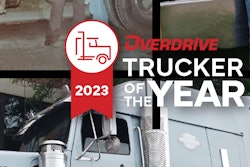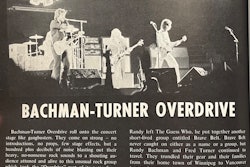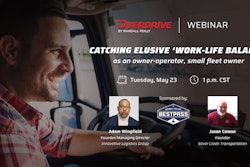From time to time I am contacted by a customer about a cargo claim, and some of those calls include concerns about a letter of declination for a recent cargo claim. Sad to say, my answers to those customers are usually not what they want to hear. Insurance agents, such as myself, are required to learn the basics of contract law. Additionally, we must pass a licensing exam that may include questions about contract law. The reason I point this out is because an insurance policy is actually a contract between the insured and the insurer. Contracts (the insurance policy in this case) always come with a set of terms and conditions. When one party of the contract violates a term or condition of the contract then the other party is no longer obligated to fulfill their part of the contract except where required by law.
First, let’s cover the basics.
Disclaimer: I am not an attorney and this is not legal advice. Please consult an attorney to receive legal advice or guidance pertaining to any of the following.
When discussing commercial auto insurance, the “except where required by law” phrase in the above paragraph is directly related to the required FMCSA filings (form BMC-91 for the MCS-90 endorsement on commercial auto insurance policies). With the exception of brokers, everyone with an interstate authority with a MC number is required to have filings for BIPD (that is, liability to others for bodily injury and property damage coverage). So when a commercial auto policy with filings has been broken or violated by the insured (the trucking company), the only portion of the policy the insurer (insurance company) is required to fulfill by law is the BIPD coverage. That is the purpose of the filings.

Sadly, this relates back to a previous article: “Don’t be lured into dishonesty to reduce your insurance premiums.” When the application is completed and signed by the insured, the insurance company has no reason to suspect or question the integrity of the applicant or the validity of the information the applicant provided. Once the applicant binds (the legal term for purchasing the policy), it is the insured’s responsibility to notify the insurance company of any changes as stipulated by the policy terms and conditions. In my experience, deceptive or false information is typically discovered when a claim has been filed. There are many ways an insurance company discovers deceptive or false information. Including:
- Accident reports
- Drivers’ statements
- Witness statements
- MCS-150 information
- IRP registrations
- IFTA reports
- UCR
- Previous claims reports
And many other areas, besides.
A claim can be filed by either the insured or by a third party. In trucking that third party is frequently a shipper, receiver, direct customer or a broker. Once the claim has been filed, the insurance company’s adjuster begins their investigation. The investigation is not limited to the details of the claim. Meaning that the adjuster may, and frequently does, verify that no term or condition of the policy (contract) has been broken or violated.
Claims-issue scenario, with an understandable conclusion.
Disclaimer: The following scenario is for example purposes only. It does not reflect any specific commercial auto insurance company or policy. Rather, this is a general scenario and only to be understood as informational. I strongly encourage readers to contact their commercial auto insurance agent for the terms and conditions of their existing policy and to verify they are compliant.
My trucking company, W. Joel Baker, has 1 truck scheduled on my insurance policy (which is also listed on my broker’s Certificate of Insurance and reported on my MCS-150 biennial update). My insurance company has provided the FMCSA the necessary BIPD filing (form BMC-91 for the MCS-90 endorsement on commercial auto insurance policies). My policy only provides coverage for “scheduled autos.” This is the case for the vast majority of policies for trucking companies. Policies which only cover scheduled autos have a term or condition within that policy that requires that all commercial vehicles owned and/or operated be scheduled on the policy.
I accept a load of glass panels from my broker with whom I do regular business. I haul the load inside my 53’ dry van trailer. At the receiver, I back into door number 3. When I do, I hit the dock too hard. I damage the dock door and the load of glass panels are dislodged, resulting in all the glass panels being broken.
A claim is reported to the insurance company for both the dock door and the glass panels. One of the first things the adjuster will do is verify that the policy was not expired. Then the adjuster will review the damage to determine if the damage is covered by the policy. If it is covered, what coverage does it fall within? In my scenario, the adjuster should determine that the damage to the dock is covered by my Auto Liability Property Damage coverage (part of the FMCSA-required BIPD). The adjuster should also determine that the damaged glass panels are insured by my Cargo coverage.
During the claim investigation, the adjuster will be passively verifying that I have not been deceptive with my application and that I have honored the terms of the policy (contract). During the course of the investigation, if the adjuster discovers some piece of information that could suggest I may have been deceitful, the adjuster will now investigate that information as well.
For my scenario, the adjuster calls the receiver to request additional information and pictures of the damaged dock. The receiver is cooperative and willing to assist the adjuster to help settle the claim as quickly as possible. During the call, the receiver tells the adjuster, “Joel and his other truck and driver are always professional, and this was just an unfortunate accident. In fact, I appreciate them so much I’ll keep using them!” This compliment and seemingly innocent piece of information just put me and my business in serious financial peril and most likely put me out of business. Why? Because the receiver just told the adjuster that, potentially, I was deceptive with my application or failed to fulfill the terms of the policy by not adding my other driver and truck to the policy, as required by the terms and conditions. Having received this information, now the adjuster is responsible to determine if I have violated the terms and conditions of my policy.
The adjuster uses any number of resources available to either verify the information provided by the receiver or to disprove it. The adjuster discovers that I actually have 3 commercial vehicles with IRP registrations. Only one of them is scheduled on my policy. At a minimum, I have failed to honor the terms and conditions of my insurance policy.
For my scenario, the adjuster will now determine if the insurance company has any legal obligation to settle the claim for either of the reported damages. Remember those filings (form BMC-91 for the MCS-90 endorsement on commercial auto insurance policies)? The damaged dock (property damage) is covered by the BIPD (auto liability bodily injury and property damage coverage to others), and the insurance company is legally obligated to settle the claim for the damaged dock because of those filings. Because I was not required to have cargo filings (which is the case for most trucking companies) there is no filing for cargo.
As such, because of my deception, there is no legal obligation for the insurance company to settle the cargo claim. The owner of the glass panels (most likely either the shipper or receiver) will now need to file a lawsuit against me. If I am found liable in court, I will most likely be required to pay for the entire cost of the damaged glass panels.
Additionally, because of my deception, the insurance company will almost certainly cancel my policy and disclosure of my deception will be added to my CLUE (Comprehensive Loss Underwriting Exchange) report. This action will all but guarantee that no insurance company will provide me insurance coverage (except for coverage through what is known as the high-risk pool). All of this will put me out of business, permanently.
Now, back to those customers who contact me about cargo claims. I have seen letters of declination that include some variation of “Insured violating provisions of the policy” as the reason a claim was denied. Not scheduling all commercial vehicles owned and/or operated on the policy is the most common reason I hear for an insurer declining coverage or denying a claim. Any misrepresentation by an insured could be a policy violation and potentially void coverage.
For a trucking company, if the insurance policy does not provide cargo coverage because of a failure to schedule all commercial vehicles owned and/or operated on the policy, the trucking company may be sued by the owner of the cargo. If the trucking company is found liable, they can be held financially responsible for the entire value of the damaged/lost cargo.
I can’t stress this enough. Never omit, deceive, or otherwise lie to your insurance agent or your insurance company. The financial devastation, loss of the business and potential legal consequences one typically experiences when they get caught far outweigh any so-called premium savings from being deceptive.
Need help with your own insurance? Call the author of this story, W. Joel Baker -- if you have questions about insurance you'd like to see addressed by Baker here in Overdrive, drop a comment under this story or get in touch with him directly via his websites.
Find more information on the ins and out of trucking insurance in the Overdrive/ATBS-coproduced "Partners in Business" manual for new and established owner-operators, a comprehensive guide to running a small trucking business. Click here to download the brand-new 2023 edition of the Partners in Business manual free of charge.











